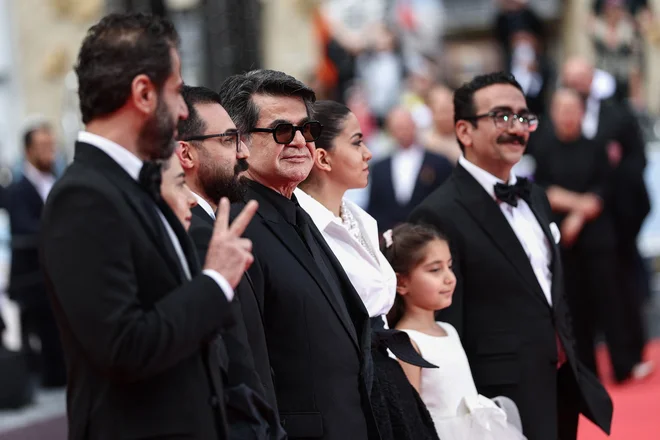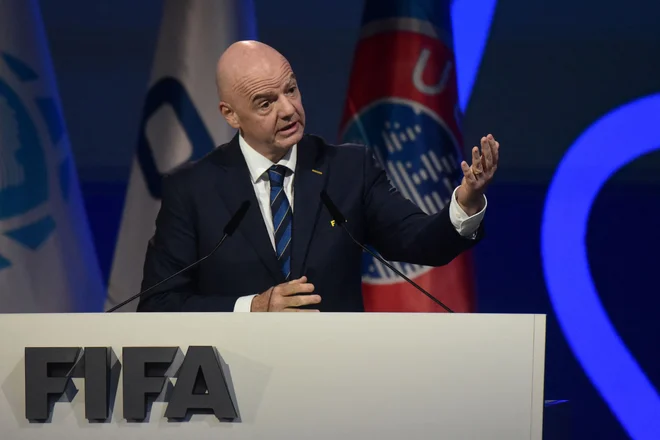Fourteen years of banning travel, prison and now eight -minute round of applause in Cannes

Seven years after the drama of the hands (Three faces) and two years after releasing from prison, dissident Iranian director Jafar Panahi returned to large canvases with Un Simple Accident (A simple accident).
The politically colored thriller premiered at the Cannes Festival, attended by the director for the first time since 2003. More than two decades of long absence is the result of the director’s resistance to the regime and the creation of films critical of Iranian policy, which repeatedly imposed a sentence on Panachi. The last 15 years – of which 14 years have a ban on travel – he has made films illegally.
At the time of his creation, the Iranian director became quite acquainted with government measures and sanctions due to rebellion. His career was marked by house arrests, a ban on travel, in February 2023 he was released from prison for the second time after seven months, he performed a hunger strike And sold his house to pay the bail, the Iranian government repeatedly banned him from making films, but without success.
Panahi with his wife and daughter and colleagues on the Red carpet in Cannes. Photo: Stephane Mahe/Reuters
2011 is a movie This is not a movie (it’s not a movie) transferred abroad on a USB stick, 2013. It is Closed curtain recorded in his home and 2015 is for shooting Taxi Tehran used as a studio to use your car, writes Guardian.
Panaha points out that the government is exerting pressure over all, not just directors, and wants to point out, among other things, in a new film. “Even when you walk down the street, the police can ask you why you are walking and where you walk. Restrictions apply to all residents, not just artists, and you can’t escape it, « he said of Guardian. He perceives his films as socially important, and the Iranian government understands them as « dangerous propaganda against the system. »
A fictional story of a real life under repression
A simple accident It is a thriller imbued with unexpected events triggered by a seemingly irrelevant event – a collision with a dog while driving.
While driving with a pregnant wife and daughter, the main character is gathering a dog and finding himself in a garage, where he encounters a former Vahid prisoner, who recognizes the driver as a former prison hearing. Vahid is abducted by the driver and wants to bury him for interrogation by torture that took place in prison. In Vahid, then he soon settled in doubt that the abducted person is not his interrogator, and therefore turns to the former co -scakes for help, who are supposed to help him confirm the identity of the abducted. This triggers a sequence of unusual events in which the stories of individuals who have suffered injustice over the repressive regime are intertwined. In search of revenge, they embark on a journey full of moral dilemmas.
The complication was described by the critics at the festival as « a small misunderstanding, triggering many events, » and Panahi drew the idea from the stories of the composers: “Some were in prison for ten or fifteen years. Their experiences and stories were inspiring, and so my idea for a movie was born, which combines all this into the whole. «
In Panaha, through a fictional story, he shows the true opacity and fear of residents in Iran, a country he describes himself as « ideological dictatorship. » Panahi, known for his critical view of the Iranian regime, made the film (again) without an official permit, which is another proof of his dedication to film art.
After Tuesday’s premiere at the Cannes Film Festival is a movie A simple accident expected an eight -minute round of applause, reports Variety. When they finally sat in, Panahi devoted the word to closed Iranian directors. “There are still many behind the prison wall that I love. I am hardly happy, I have a hard time feeling free to know they are still there, « he said.
The film is another Huron Panachi voice of resistance that Iranian government in no way succeeds in silencing. With his stubborn, the director again confirms that even in the most demanding conditions, work can be created that impresses film festivals such as Cannes.








